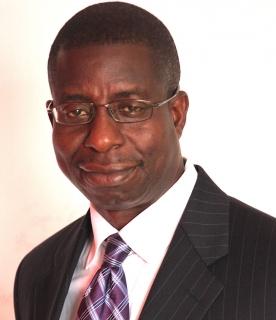
The recent spate of summary but affirmative decisions of the Supreme Court in hotly contested governorship election petitions provides a dire warning of the urgent need for comprehensive electoral reform.
The recent spate of summary but affirmative decisions of the Supreme Court in hotly contested governorship election petitions provides a dire warning of the urgent need for comprehensive electoral reform.

Obviously, the Supreme Court relishes its image as a fearsome exponent of legal realism. Oliver Wendell Holmes, American jurist and avatar of this school, laid down its doctrine as:
“The prophecies of what the courts will do in fact, and nothing more pretentious” (emphasis original).
Despite its capacity for judicial retardation and political cynicism, the Court has been gleefully torturing our civic sensibility with this doctrine for 35 years. One might say, “The votes of judges of the Nigerian Supreme Court, and no ballots more pretentious, determine elections.”
The verdict, admittedly, is less straightforward in governorship petitions which have led to electoral justice in a few cases: Rotimi Amaechi’s in Rivers State, Peter Obi’s in Anambra, Kayode Fayemi’s in Ekiti, Adams Oshiomhole’s in Edo, and Rauf Aregbesola’s in Osun. The seeds of Nigeria’s baleful electoral jurisprudence were scattered in 1979 with Awolowo v Shagari and had grown into an iroko 26 years later with Buhari v Obasanjo. Its elements are as follows; the presumption of regularity of an election and the court’s duty to salvage it notwithstanding the extent of non-compliance with the electoral law or that it was marred by murder and mayhem and the ballots literally stained with blood, acceptance in principle of a shifting burden of proof, election petitions being civil matters, but in practice of an almost never-shifting onus on the petitioner to prove beyond reasonable doubt not only non-compliance but also that such non-compliance affected the result; and that a respondent’s victory is not tainted by acts of violence and intimidation unless he or she was directly responsible for them.
These principles have led to a malignant African electoral jurisprudence. The supreme courts of Ghana, Uganda, Kenya, and Burundi are sheepishly following Nigeria’s lead. Here, for instance, is what the Kenyan Supreme Court said when upholding a massively flawed election in the case of Raila Odinga v The Independent Electoral and Boundaries Commission & Ors:
“We find merit in such a judicial approach, as is well exemplified in the several cases from Nigeria. Where a party alleges non-conformity with the electoral law, the petitioner must not only prove that there has been non-compliance with the law, but that such failure of compliance did affect the validity of the elections.”
The late Bamidele Aturu (God rest his soul) left a valuable parting gift in his analysis of the Ghanaian Supreme Court’s decision on the 2012 presidential election. Entitled The Burdens of Democracy in Africa: How the Courts Sustain Presidential Elections (available online via the Ford Foundation website), it traces the pernicious influence of Nigeria on the rest of the continent. I had the honor of preparing the report for publication and I highly recommend it.
Judicial affirmation of electoral malfeasance serves three dangerous purposes: it voids the will of the people as the basis of the authority of government, it rewards politicians who turn elections into warfare, and it subverts the objective of electoral laws and regulations, which is free and fair elections. Yet, for an election to be adjudged free and fair, every important step preceding and during actual voting must be considered. Indeed, it is quite often a matter of perception. What do the ordinary citizens and local and foreign observers think? This obligates judges not to substitute their will, masked by slavish adherence to procedural technicalities and rigid constructivism, for that of the people and to adopt the more wholesome principle enunciated in the English case of Morgan v Simpson, followed all too briefly, regrettably, in the 1966 case of Swem v Dzungwe, to wit: If the election was conducted so badly that it was not substantially in accordance with the law, the election is vitiated, irrespective of whether the result was affected or not (my emphasis). What is substantial is, of course, arguable, but should be decided on a balance of probability, and once prima facie evidence of non-compliance is proffered, the burden of proving its insignificance must shift to the respondent(s). It is a perversion of justice in a matter of such sacrosanct as elections to place an unusually high burden of proof on the petitioner due to the presumption of regularity. Every instance of over-voting, result falsification, ballot-snatching, violence and intimidation, etc., must be deemed to affect the result of an election. In any case, they indubitably breed fear and cynicism and suppress voter turnout, leading to an ever smaller percentage of the people deciding who governs them.
To echo two maxims of justice, it is better to order a fresh election than to let a candidate profit from one that is manifestly not free or fair, and where there is an electoral wrong, there should be a remedy. How else would politicians desist from political brigandage? This calls for far-reaching electoral reforms to make petitions less a matter of purblind judicial discretion or timidity and more of a defence of the will of the people as the bedrock of democracy. I agree with Professor Ben Nwabueze: the Supreme Court just doesn’t “appreciate that the question of who should rule Nigeria [or a state] is not one to be decided by a perverse and narrow legalism, by the technicalities of the rules of evidence, practice and procedure and by considerations of expediency.”